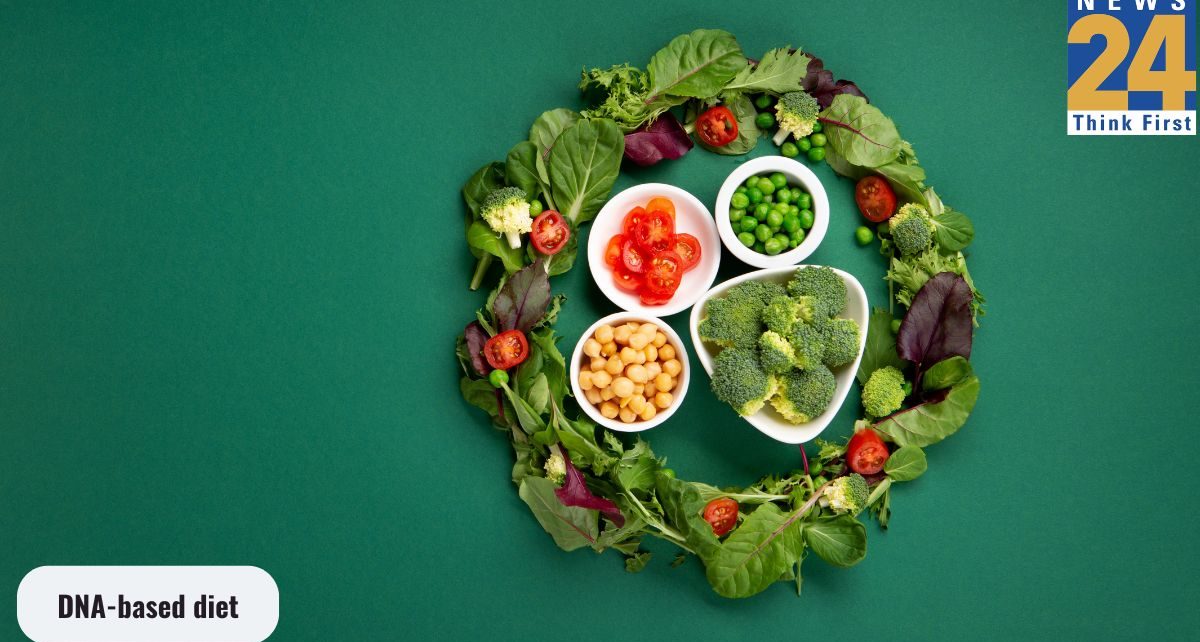You know the feeling. Your friend swears by a keto diet, dropping pounds and beaming with energy. You try it and feel… awful. Sluggish, irritable, and constantly dreaming of toast. Meanwhile, another friend thrives as a vegan, while you’re left wondering where you went wrong.
It’s frustrating, isn’t it? The one-size-fits-all approach to nutrition is, frankly, falling apart. We’re all unique, so why would one diet work for everyone? This is where the fascinating world of personalized nutrition based on genetic testing comes in. It’s like getting the owner’s manual for your own body.
What Exactly is DNA-Based Nutrition?
Let’s break it down. At its core, nutrigenomics is the science of how the foods you eat interact with your genes. Think of your DNA not as a rigid, unchangeable blueprint, but more like a complex set of switches. The nutrients you consume can flip these switches on or off, influencing everything from your metabolism to your risk for certain diseases.
Personalized nutrition based on genetic testing takes this concept and makes it practical. By analyzing a simple saliva sample, these tests can identify specific genetic variants you possess. These variants can reveal how your body processes carbohydrates, what type of exercise is most effective for you, or even if you’re predisposed to needing more of a specific vitamin.
The Science Behind the Swab: What Your Genes Can Tell You
Okay, so what are these tests actually looking for? They’re scanning for tiny variations in your genetic code called SNPs (pronounced “snips”). These aren’t genes for disease, per se, but rather small differences that make you, you. And they have a surprising amount to say about your plate.
Caffeine Metabolism
Ever had a coffee at 3 PM and been wide awake at midnight? Or, conversely, can you drink an espresso and fall straight asleep? This isn’t just in your head. A variant in the CYP1A2 gene dictates how quickly you break down caffeine. Slow metabolizers may have an increased risk of high blood pressure and heart palpitations with high caffeine intake, while fast metabolizers process it efficiently.
Lactose Intolerance
This is a classic example. The ability to digest lactose into adulthood is actually a genetic mutation—a beneficial one that spread through populations with a history of dairy farming. A test can confirm a variant in the LCT gene, which produces the lactase enzyme. If you don’t have it, well, that explains why that milkshake didn’t sit well.
Macronutrient Response
This is the big one for many people. Genes can influence whether your body might respond better to a lower-fat or a lower-carbohydrate diet. For instance, variations in the FTO gene, often called the “obesity gene,” have been linked to how full you feel after eating and how your body stores fat. It’s not a destiny, but it’s a powerful clue.
The Real-World Impact: A Glimpse at the Data
Let’s get concrete. Imagine two people, Alex and Sam, get their genetic testing for nutrition done. Here’s a simplified look at how their results might differ.
| Genetic Marker | Alex’s Result | Sam’s Result | Dietary Implication |
|---|---|---|---|
| CYP1A2 (Caffeine) | Slow Metabolizer | Fast Metabolizer | Alex should limit coffee to 1 cup; Sam can tolerate more. |
| LCT (Lactose) | Lactose Tolerant | Lactose Intolerant | Sam should opt for lactose-free dairy or alternatives. |
| FTO (Satiety) | Higher Hunger Risk | Typical Satiety | Alex may benefit from a higher protein/fiber diet to feel full. |
| APOA2 (Saturated Fat) | Sensitive | Not Sensitive | Alex needs to be more mindful of saturated fat intake for weight management. |
See how personal this gets? It moves you from guessing to knowing. It empowers you to make choices that align with your biology, not just the latest fad.
But It’s Not a Crystal Ball: The Limitations You Should Know
Let’s be real for a second. As incredible as this science is, it’s not a magic wand. Your genes are only one piece of a very large, very complex puzzle. Honestly, they’re not even the biggest piece.
Your lifestyle, your environment, your stress levels, your sleep patterns, and even your gut microbiome—a vast ecosystem of bacteria living in your intestines—play enormous roles in your health. You could have the “ideal” genes for metabolizing fat, but if you’re chronically stressed and sleep-deprived, your body will likely hold onto weight regardless.
Think of it this way: your genes load the gun, but your lifestyle pulls the trigger. A genetic test for nutrition gives you incredible insight into how the gun is loaded, but you’re still the one in control of the trigger.
So, Is Getting a Test Worth It?
That’s the million-dollar question, isn’t it? If you’re someone who has tried everything—every diet, every trend—and you’re still struggling with energy, weight, or digestive issues, then a personalized nutrition DNA test could be a game-changer. It provides a starting point that is uniquely yours.
That said, it’s crucial to have realistic expectations. The report you get is a set of data-driven suggestions, not a rigid, mandated diet plan. The most powerful approach is to use this genetic information as a guide, and then layer it with the other fundamentals of health: moving your body, managing stress, and eating whole, minimally processed foods.
And please, for the love of kale, talk to your doctor or a registered dietitian. They can help you interpret the results in the context of your overall health. Don’t just go it alone.
The Final Bite
We’re standing at the edge of a new era in wellness. Personalized nutrition based on genetic testing demystifies our relationship with food, replacing blanket statements with biological insight. It’s a tool that hands the power back to you, suggesting that the best diet in the world isn’t the one trending on social media—it’s the one written in your very own cells.




